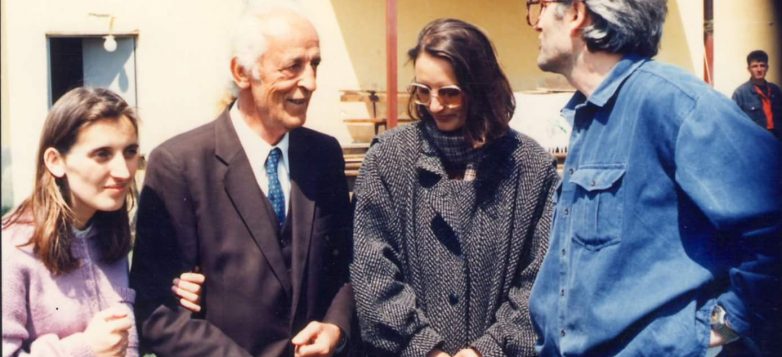The beginnings of the Blood Feuds Reconciliation Movement.
The spokesperson of Milosevic’s government appeared on [prime time] news at that time […] And said, ‘They were not killed by our army and our police,’ by them, ‘primitive Albanians were killed because of blood feuds.’ […] It was very irritating, it was unacceptable to me, it was very discriminatory, it was very untrue, it was very dehumanizing.
And the next day I went to Peja. Myrvete was the first person I wanted to meet and the one I went there with the intention to meet […] I met her in Peja and we started talking, I don’t remember whether she had watched the news or not. Myrvete and I, we always understood each-other well, we were friends even before, before prison, during prison and after prison. And we understood each-other, we didn’t have to explain much, we didn’t have to put an effort to convince each other… she considered [blood feuds reconciliation] very important and she said, ‘Let’s see what we can do.’ […]
Brahim, Lul, Myrvete and I went to Adem’s [Grabovci] house that day, and we talked and we agreed without hesitation, I mean, we didn’t need to discuss much, we didn’t need to talk much or philosophize. […]
Then we thought about a person, a honourable, treasured and valuable face who also has the competence to enter the oda, to hold oda-style conversations, it was professor Zekerija Cana and professor Anton Çetta, Zekerija Cana first, respectively. He was honourable, at least to us, but not only to us, we knew his engagement, his writings.”
Hava Shala was born in 1966, in the village of Lugu i Baranit, municipality of Peja. Due to her political activity, she was arrested in 1984 together with six other girls and two boys. This case is known as “The Group of Peja Girls.” After she was released from prison in December 1988, she engaged as an activist within the Movement for Blood Feuds Reconciliation. Shala graduated in Intercultural Communication, and today she works as a social worker in Switzerland.
